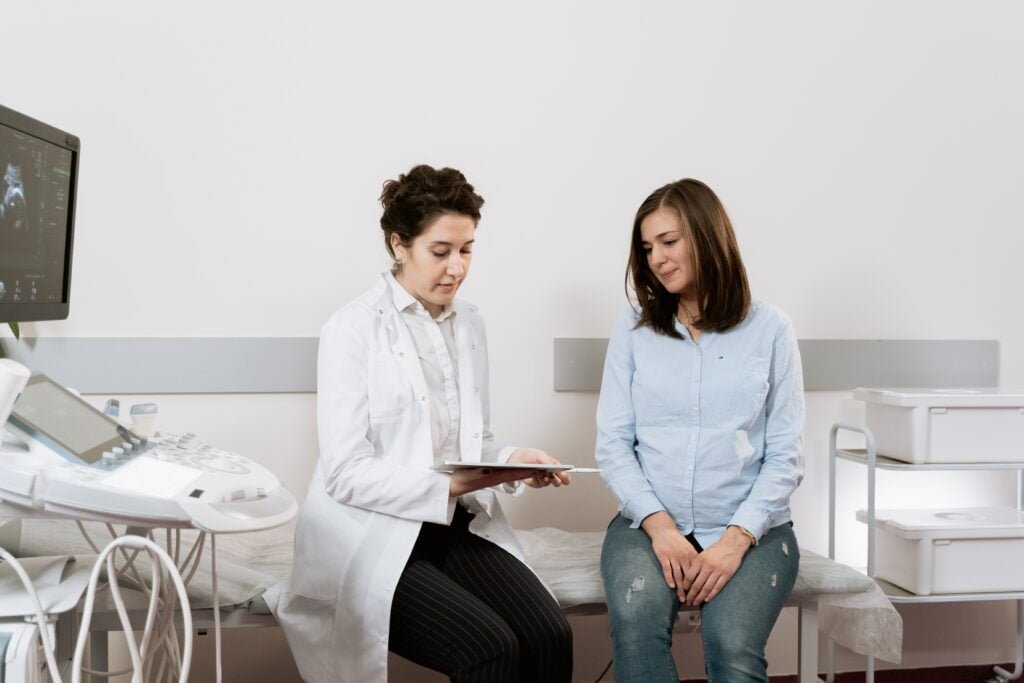What are the signs you are aging well?
Aging is an inevitable journey we all embark upon, and how we navigate this process can significantly impact our overall well-being.
Aging well encompasses the ability to maintain optimal physical, cognitive, and emotional health as we grow older.
It involves actively caring for our bodies and minds, making choices that support longevity, and embracing a positive and fulfilling outlook on life.
In our fast-paced world, where daily stressors can impact our health, it is essential to focus on aging well.
By recognizing the signs and indicators of aging well, we can make informed choices and adopt habits that promote longevity and vitality.
This article aims to explore the signs that indicate you are aging well.
Some of the links in this post are affiliate links. This means if you click on the link and purchase the item, I will receive an affiliate commision at no extra cost to you. All opinions remain my own. Read more on our Privacy Policy page

Physical Signs of Aging Well

Healthy Skin
The condition of your skin serves as a prominent indicator of aging well. It reflects not only external beauty but also the overall health and care you invest in yourself.
Smooth and Elastic
Smooth, supple skin showcases your skin’s vitality and elasticity. It suggests that your skin retains moisture effectively, giving it a soft and plump texture. Touchable smoothness indicates that your skin has maintained its natural firmness and bounce.
Minimal Wrinkles or Fine Lines
While aging brings inevitable wrinkles and fine lines, having a modest presence of them suggests that your skin has aged gracefully. It signifies that your skin has preserved its elasticity and collagen, minimizing the appearance of wrinkles and fine lines.
Even Skin Tone
An even skin tone is a positive sign of aging well. It indicates a harmonious complexion without notable discolorations, such as dark spots or uneven patches. A balanced skin tone suggests that your skin has endured minimal sun damage, pigmentation issues, or other common skin concerns.
READ MORE ABOUT ANTI-AGING SUPPLEMENTS HERE

Good Posture and Flexibility
Maintaining excellent posture and flexibility are key physical indications of aging well. They reflect the strength and mobility of your musculoskeletal system, playing a significant role in your overall physical health and well-being.
Straight Back and Upright Stance
A straight back and an upright stance exemplify good posture, which is essential for proper spinal alignment and optimal body mechanics. It signifies that the muscles supporting your back are well-developed and balanced, reducing the likelihood of back pain and postural issues.
Ease of Movement and Range of Motion
Aging well involves effortless movement and a broad range of motion in your joints. It suggests that you can perform daily activities with flexibility, free from discomfort or stiffness. Maintaining a wide range of motion enables you to participate in physical activities, maintain independence, and embrace an active lifestyle.
get access to 12-week Yoga Burn Challenge!
The Ultimate Guide: How to Slow Down Aging Naturally
Strong Muscles and Bones
Strong muscles and bones are integral indicators of aging well. They demonstrate the robustness and resilience of your musculoskeletal system, essential for physical strength, mobility, and overall health.
Adequate Muscle Mass
Having an appropriate amount of muscle mass is a significant sign of aging well. It implies that you have maintained or developed muscle tissue, supporting functional movement, stability, and overall strength. Sufficient muscle mass enhances balance, posture, and the ability to perform daily activities with ease.
Healthy Bone Density
Maintaining healthy bone density is crucial for successful aging. It refers to the strength and density of your bones, reducing the risk of fractures and conditions like osteoporosis. Strong bones provide a solid framework for the body, supporting mobility and protecting vital organs.
RECOMMENDED SUPPLEMENT :


Vitality and Energy Levels
Maintaining vitality and high energy levels are crucial aspects of aging well. They signify your overall physical well-being and the ability to lead an active and fulfilling life.
Sustained Energy
Throughout the Day One of the key signs of aging well is experiencing consistent and sustained energy levels throughout the day. It means having ample vitality and endurance to engage in daily activities without experiencing excessive fatigue. Consistent energy levels allow you to participate in tasks, hobbies, and social interactions with enthusiasm and vigor.
Physical Stamina and Endurance
Aging well encompasses having excellent physical stamina and endurance. It indicates the ability to engage in physical activities, exercise, or face challenges without feeling excessively drained. Having strong stamina and endurance enables you to maintain an active lifestyle, support cardiovascular health, and fully enjoy a wide range of activities.
get access to 12-week Yoga Burn Challenge!
Cognitive Signs of Aging Well
Sharp and Clear Thinking
Maintaining sharp and clear thinking is a crucial cognitive sign of aging well, supporting independence and overall well-being.
Quick Decision Making
Quick decision-making abilities reflect cognitive agility and efficiency. They demonstrate the capability to analyze complex situations, process information rapidly, and make well-informed judgments. Being able to make quick decisions enhances productivity, problem-solving skills, and adaptability to new circumstances.
Good Memory Retention
Good memory retention is essential for cognitive well-being. It involves the ability to acquire, retain, and recall information effectively. A strong memory enables remembering important details, learning new concepts, and engaging in conversations with clarity and accuracy. It supports cognitive functions such as learning, problem-solving, and maintaining relationships.

Mental Flexibility
Maintaining mental flexibility is vital for aging well, as it enables adaptability, learning, and intellectual growth.
Adaptability to New Situations
Adaptability reflects the ability to adjust thinking, behaviors, and strategies to navigate unfamiliar or changing circumstances. It involves embracing change, being open to new ideas, and thinking creatively to find innovative solutions. Being adaptable supports effective problem-solving and the ability to embrace new challenges and opportunities.
Openness to Learning and Growth
Openness to learning and growth fosters cognitive well-being. It signifies curiosity, a thirst for knowledge, and a willingness to explore new areas of interest. Being receptive to new ideas and experiences stimulates intellectual engagement, personal development, and continued cognitive vitality. It encourages lifelong learning, which helps maintain cognitive function and keeps the mind sharp.
Emotional Stability
Emotional stability plays a vital role in cognitive aging well, promoting overall well-being and adaptability.
Positive Outlook and Emotional Resilience
A positive outlook reflects emotional well-being and the ability to maintain optimism, even during challenging times. It involves adopting a constructive mindset, finding silver linings, and managing stress effectively. Emotional resilience allows for bouncing back from setbacks, maintaining mental balance, and approaching life with hope and positivity.
Effective Stress Management
Effective stress management is crucial for cognitive health. It encompasses developing healthy coping mechanisms to deal with stressors and reducing anxiety levels. By managing stress effectively, one can improve cognitive function, memory, attention, and decision-making abilities. Engaging in relaxation exercises, mindfulness practices, and activities that bring joy and relaxation contribute to emotional stability and cognitive well-being.
To support cognitive signs of aging well, engage in mentally stimulating activities such as puzzles, reading, or learning new skills. Maintain social connections to promote cognitive stimulation and emotional well-being. Regular physical exercise, sufficient sleep, a balanced diet, and stress reduction techniques are also essential for cognitive health and overall well-being.
5 Ways to naturally Boost Collagen Production for Youthful Skin
Emotional Signs of Aging Well

Healthy Relationships
Developing and maintaining healthy relationships is a fundamental emotional sign of aging well. These connections provide a sense of belonging, support, and fulfillment, contributing to overall emotional well-being.
Close Bonds with Family and Friends
Building close bonds with family and friends is essential for emotional well-being. These relationships offer love, companionship, and a support system during both joyful and challenging times. Close connections with loved ones provide a deep sense of belonging, security, and emotional intimacy.
Supportive Social Network
A supportive social network extends beyond immediate family and friends. It encompasses a broader circle of acquaintances, community involvement, and social connections that provide support, understanding, and a sense of belonging. A strong social network offers opportunities for social engagement, shared experiences, and emotional support.
Sense of Purpose and Fulfillment
Developing a sense of purpose and experiencing fulfillment is a profound emotional sign of aging well. It involves engaging in meaningful activities and deriving a sense of accomplishment from various aspects of life.
Engaging in Meaningful Activities
Engaging in activities that hold personal significance is vital for cultivating a sense of purpose and fulfillment. These activities can encompass hobbies, volunteering, creative pursuits, or meaningful work. By participating in activities that resonate with your values and passions, you experience joy, fulfillment, and a sense of contributing to something greater than yourself.
Feeling a Sense of Accomplishment
Experiencing a sense of accomplishment is an integral part of emotional well-being. It entails setting goals, working towards them, and deriving satisfaction upon achieving milestones. Accomplishments, whether small or significant, boost self-esteem, confidence, and overall emotional fulfillment.

Optimistic Attitude
Maintaining an optimistic attitude is a valuable emotional sign of aging well. It involves the ability to find joy, satisfaction, and overall emotional well-being.
Ability to Find Joy and Satisfaction
An optimistic attitude enables you to discover joy and satisfaction in both the significant and small moments of life. It means appreciating the simple pleasures, cultivating gratitude, and focusing on the positive aspects of your experiences. By embracing a positive mindset, you can enhance your emotional well-being, approach challenges with resilience, and find fulfillment in the various facets of your life.
Emotional Well-being
Emotional well-being is a crucial element of aging well. It encompasses a range of positive emotions, such as happiness, contentment, and inner peace. Nurturing emotional well-being involves effectively managing stress, developing healthy coping mechanisms, and fostering a positive self-image. An optimistic attitude contributes to emotional resilience, empowering you to navigate life’s ups and downs with greater ease and grace.
Lifestyle Factors Contributing to Aging Well

Balanced and Nutritious Diet
Maintaining a balanced and nutritious diet is a crucial lifestyle factor that promotes healthy aging. It forms the foundation for overall well-being and supports optimal physical and cognitive function.
Adequate Intake of Essential Nutrients
Consuming a diverse range of essential nutrients is vital for aging well. These include vitamins, minerals, proteins, carbohydrates, and healthy fats. Adequate intake of these nutrients supports energy production, immune function, and the maintenance of vital organs and tissues. It also plays a key role in promoting healthy skin, strong bones, and a well-functioning nervous system.
Antioxidant-Rich Foods
Prioritizing antioxidant-rich foods is particularly beneficial for healthy aging. These foods help counteract the damaging effects of free radicals, which contribute to the aging process and age-related diseases. Including foods such as berries, leafy greens, nuts, and seeds, which are abundant in antioxidants, can reduce inflammation, support brain health, and promote overall cellular well-being.


Regular Exercise Routine
Incorporating a regular exercise routine is a crucial lifestyle factor for aging well. Exercise promotes physical fitness, strength, and overall vitality, contributing to a higher quality of life.
Cardiovascular and Strength Training
Engaging in a combination of cardiovascular exercises and strength training is key to reaping the benefits of exercise. Cardiovascular activities such as brisk walking, jogging, or dancing enhance heart health, boost endurance, and improve overall stamina. Strength training exercises like weightlifting or resistance training help maintain muscle mass, increase bone density, and enhance overall strength and stability.
get access to 12-week Yoga Burn Challenge!
Flexibility and Balance Exercises
Including flexibility and balance exercises in your routine improves joint mobility, posture, and overall stability. Practices such as yoga, Pilates, or tai chi promote flexibility, enhance range of motion, reduce the risk of falls, and support overall physical well-being.

Quality Sleep
Prioritizing quality sleep is essential for healthy aging. It provides an opportunity for the body to rest, repair, and rejuvenate, contributing to optimal physical and cognitive function.
Sufficient Duration and Good Sleep Quality
Ensuring an adequate duration of sleep, typically 7-9 hours for adults, is crucial for overall well-being. Quality sleep involves uninterrupted sleep cycles, allowing for deep and restorative rest. Creating a sleep-conducive environment, such as a dark, quiet, and comfortable bedroom, promotes better sleep quality.
Establishing a Bedtime Routine
Establishing a consistent bedtime routine helps signal the body to wind down and prepare for sleep. Engaging in relaxing activities before bed, such as reading, taking a warm bath, practicing deep breathing, or engaging in a calming mindfulness practice, can promote relaxation and improve sleep quality. Creating a consistent sleep schedule and maintaining a relaxing sleep environment further enhance the effectiveness of the bedtime routine.
How to Get a Restful Night’s Sleep for Anti-Aging Benefits: A Comprehensive Guide

Stress Reduction Techniques
Practicing stress reduction techniques is essential for managing the demands of daily life and promoting overall well-being.
Meditation or Mindfulness Practices
Incorporating meditation or mindfulness practices into your daily routine promotes relaxation, reduces stress, and enhances emotional well-being. These techniques involve focusing the mind, cultivating awareness of the present moment, and developing a sense of inner calm and clarity.
Relaxation Exercises
Engaging in relaxation exercises, such as deep breathing exercises, progressive muscle relaxation, or guided imagery, helps release tension, lower stress levels, and induce a state of tranquility and well-being. These exercises promote physical and mental relaxation, allowing the body and mind to unwind and rejuvenate.

Importance of Regular Health Check-ups and Screenings

Early Detection of Health Issues
Regular health check-ups and screenings are crucial for identifying potential health issues at an early stage, enabling timely intervention and treatment.
Early Detection of Diseases
Regular check-ups and screenings allow healthcare professionals to detect diseases in their early stages. This early detection significantly increases the chances of successful treatment and improved health outcomes. Conditions such as cancer, cardiovascular diseases, diabetes, and hypertension can be identified early, when they are more manageable and have a better prognosis.
Monitoring of Risk Factors
Health check-ups help monitor and assess individual risk factors for various diseases. By closely monitoring blood pressure, cholesterol levels, blood sugar levels, and other indicators, healthcare professionals can identify potential risks and take preventive measures to reduce the likelihood of developing certain conditions. Regular check-ups provide an opportunity to discuss lifestyle modifications, such as improving diet, increasing physical activity, and managing stress, to minimize health risks.
Prevention and Timely Treatment
Regular health check-ups and screenings also facilitate preventive measures and timely treatment, reducing the impact of diseases and promoting overall well-being.
Preventive Care
Health check-ups enable healthcare professionals to provide personalized preventive care recommendations. This may include vaccinations, screenings for specific diseases, and lifestyle counseling to promote healthy habits. By addressing potential risk factors and implementing preventive measures, the likelihood of developing certain diseases can be significantly reduced.
Timely Treatment and Intervention
Regular check-ups allow for early intervention and timely treatment when health issues are identified. Prompt diagnosis and treatment can prevent the progression of diseases, minimize complications, and improve health outcomes. Through regular monitoring and follow-up, healthcare professionals can adjust treatment plans and ensure that appropriate interventions are implemented promptly.

Conclusion
In conclusion, there are several key signs that indicate aging well across different aspects of life. These signs encompass physical, cognitive, and emotional well-being, reflecting a holistic approach to healthy aging.
To achieve aging well, it is crucial to adopt healthy lifestyle habits. This includes maintaining a balanced and nutritious diet, incorporating regular exercise routines that encompass cardiovascular, strength, flexibility, and balance exercises, prioritizing quality sleep, practicing stress reduction techniques such as meditation or relaxation exercises, and ensuring regular health check-ups and screenings.
So, let us embark on this journey of aging well together, nurturing our physical, cognitive, and emotional health, and embracing a positive and proactive mindset. By incorporating healthy lifestyle habits into our daily lives, we can make the most of our aging process, living with vitality, purpose, and fulfillment.
Top 10 Books about Anti-Aging You Should Read
IMPROVE YOUR METABOLISM NOW WITH TEA BURN!
FAQs
At what age does your face change most?
The timing and extent of facial changes can vary due to factors like genetics, lifestyle, and overall health. However, notable changes in the face are commonly observed during the natural aging process, typically starting in the late 30s or early 40s. These changes may manifest as the emergence of fine lines, wrinkles, diminished skin elasticity, uneven skin tone, and the appearance of age spots or pigmentation.
What are three physical signs of aging?
There are various physical signs that often accompany the aging process. Three common ones include: a) Wrinkles and fine lines: These result from the natural decline of collagen and elastin in the skin, as well as repetitive facial movements and sun exposure. b) Skin sagging: Reduced skin elasticity can contribute to sagging skin, particularly in areas such as the cheeks, jowls, and neck. c) Age spots or pigmentation changes: Accumulated sun exposure and irregular melanin distribution can lead to the development of age spots or alterations in skin pigmentation.
What age does aging become noticeable?
The noticeable signs of aging can manifest at different ages for individuals. While subtle changes like fine lines and slight shifts in skin texture may appear in the late 20s or early 30s, they tend to become more pronounced and noticeable as people enter their 40s and beyond. The skin’s natural aging process accelerates during this time, making signs of aging more perceptible.

What age do you start slowing down?
What age do you start slowing down? The onset of a gradual slowdown in physical capabilities can vary from person to person. Generally, many individuals start noticing a decline in physical stamina and a slower metabolic rate in their 40s or 50s. However, it is essential to recognize that lifestyle choices, overall health, and genetic factors can influence the timing and extent of this slowdown. By adopting a healthy lifestyle, which includes regular exercise and a balanced diet, one can mitigate some of the effects of natural aging and support overall well-being.
references: (https://www.healthline.com/program/healthy-aging)






